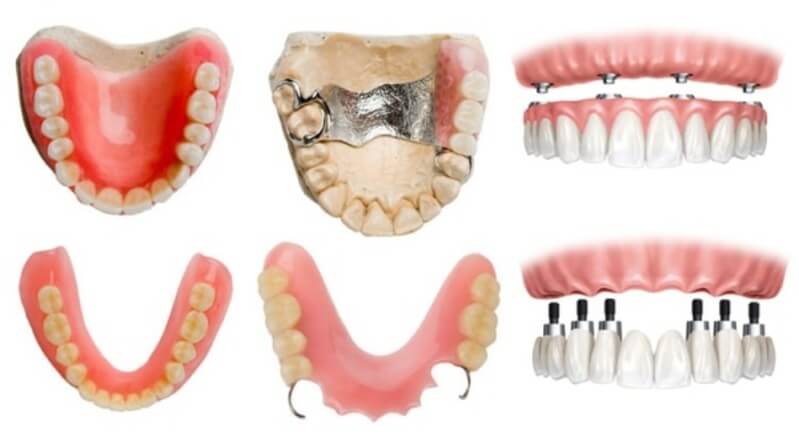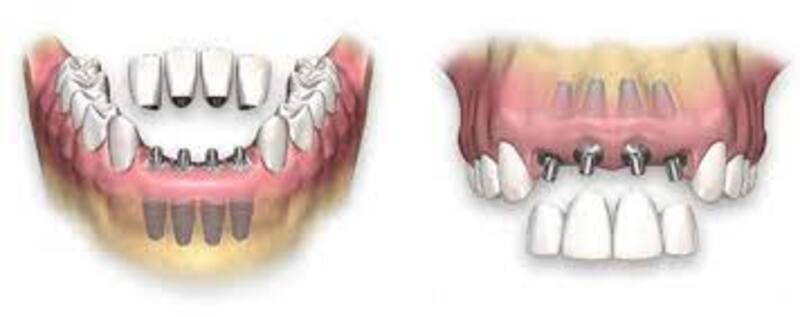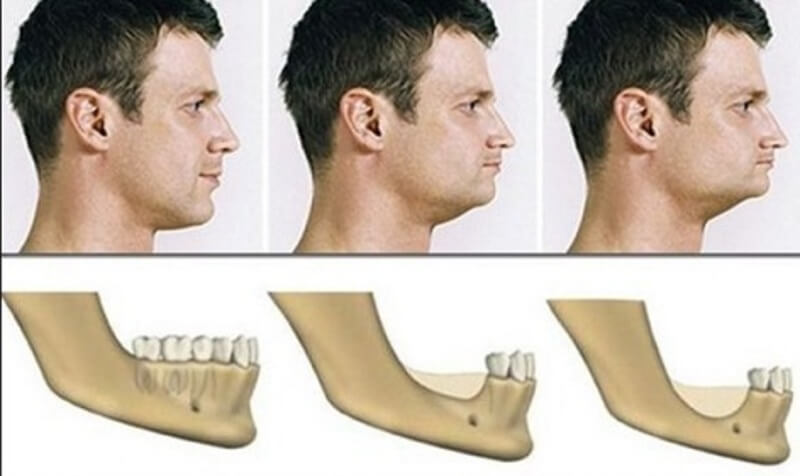Dental Implantation or Prosthetic Rehabilitation: What to Choose?

Contents:

Loss of teeth is not only an aesthetic problem but also a significant physiological impairment. The long-term tooth loss leads to dislocation of all teeth in the row. The wider the affected area, the faster the pathological changes develop. Implantation and prosthetics allow restoring the integrity of the dentition. However, the techniques differ significantly.
In recent years, clinical dental implantation has firmly entered the most demanded orthodontic procedures in dentistry. It is essential to consider implantation and prosthetic rehabilitation features in more detail when choosing a method for replacing missing natural teeth.
Dental Implants or Prosthetic Rehabilitation?
The primary and most crucial difference between implantation systems and prosthetics is imitating the roots of lost teeth with a titanium implant. In the future, a prosthesis or a bridge can be installed on the implants. The technique is perfect for eliminating partial loss of teeth and full edentulism.
Fixed dental prostheses are installed in case one or two teeth are missing in a row. With a more significant impairment, it is more challenging to place fixed prostheses without implant support. A prosthesis connected to natural teeth leads to an incorrect biting force distribution and jawbone atrophy. To understand the difference between prosthetics and implantation, you should consider both methods’ general clinical aspects.
What Is Implant Surgery?

Implantation is a surgical procedure in dentistry, during which a titanium implant (metal rod) is screwed into the bone tissue of the tooth, imitating the natural roots. The implant thread design is unique, which improves the osseointegration. Within 3-6 months, the implant is completely fused with the jaw’s tissues. Implantation solves many problems regarding edentulous dentures.
Implant system installation allows to:
- completely restore 1 tooth;
- restore 2 or more missing teeth;
- perform tooth extraction and implantation the same day;
- install any prostheses on implants;
- use different systems (all-on-4, all-on-6).
Successful implantation allows performing prosthetics over the implant an unlimited number of times. Thus, the artificial root serves for the rest of its life.
In a single-tooth restoration, an implant and a crown are placed. If more than 3 teeth in a row are lost, the implants’ number reaches 3 to 6. Implants on the sides and in the middle of the jaw row are required to fix a conditionally mobile prosthetic restoration.
Prosthetic Rehabilitation
Prosthetic rehabilitation is a method of restoring the dentition when one-two or more teeth are missing, which does not imply implant placement. In case of a single tooth defect, they resort to microprosthetics (inlays) or an implant placement. A crown made of zirconium, a porcelain fused to metal, and other materials are durable and will serve the patient for more than 10 years.
If several teeth are missing or partial or complete tooth loss occurs, then mobile dentures with special retention clips are used. Removable dentures consist of artificial teeth and acrylic material imitating natural gums. The products perfectly cope with the chewing force, meet high aesthetics and durability criteria, but the benefits of dentures for partially or entirely edentulous patients do not extend further.
Despite their availability, dentures become loose after 3-5 years of wearing and need replacement. Besides, patients need to clean it, remove the prosthesis at night or several times a week. False teeth can come out, reducing the quality of life – patients are constantly focused on their sensation in the oral cavity. The adaptation period after the placement of mobile implant-supported dentures is 14-30 days. During this time, the product rubs, causes pain during chewing load, and leads to gradual atrophy of bone tissue.
What Are the Long-Term Effects of Missing Teeth?
Missing teeth are not only unaesthetic. Toothlessness violates the maxillofacial apparatus’s anatomy due to the displacement of the teeth towards the defect, which changes the bite. Long-term tooth loss causes other complications:
- tooth decay;
- reduced masticatory muscle function;
- inflammatory lesions in the gingiva;
- shrinking, noticeable defect of soft tissues – tooth socket deepens;
- digestive disorders;
- voice distortion and blurred speech.
In the future, this can lead to drooping mouth corners, face asymmetry, fixation on unattractive smile. All these problems do not develop instantly. However, the long-term loss of teeth makes them appear rather quickly.
Special Aspects of Correct Dental Implant Surgery
In the Clinic of Aesthetic Dentistry, modern methods of implant surgery are applied in order not only to increase the restoration performance but also to reduce the risk of implant failure dramatically. Choosing an implant surgery, the patient gets guarantees of survival rate and long-term performance. The key to successful osseointegration is the correct and consistent preparation. The violation of the planning scheme can negatively affect the osseointegration and lead to implant failure. Therefore, the doctors in the Clinic mainly use computed tomography and other auxiliary diagnostic methods. Today, preparation and adherence to the implantation protocol ensure the success of the operation by 98%. At the same time, long-term risks are minimized.
Implant surgery has several contraindications defined for standard surgeries of various etiology and complexity. Implant surgery is not performed for people with a weak immune system, autoimmune pathologies, and other diseases, recurrence of which can cause life-threatening complications.
Advantages and Disadvantages of Dental Prosthetic Rehabilitation
The advantage of traditional prosthetics is the availability and the minimum list of contraindications. Mobile prosthetic restorations have no limitations. These are all advantages of conventional prosthetics compared to implant surgery. The main disadvantages of mobile prosthetic restoration placement are:
- insufficient fixation – removable dentures can fall out due to a slight increase in biting force;
- nausea and even gagging during fixation of the artificial jaw;
- long adaptation;
- the need for teeth facing;
- biting force shift and bone tissue atrophy;
- the service life of the abutment teeth is sharply reduced; they often need to be removed after 5-7 years;
- massive artificial palate.
Removable dentures block the taste buds and generally reduce the patients’ life quality. The fact is that the service life of implants, despite the high price, is practically lifelong. Removable dentures or pivot crowns will require replacement after a few years. Besides, faced teeth are more prone to caries. Before treatment, the orthodontic structure is removed, and therefore, the subsequent fixation worsens.
Besides, removable dentures and single crown prosthetics leave a gap between the jaw. Food constantly gets into this gap, and proper cleaning is difficult. Over time, the patient is annoyed by bad breath.
So what Types of Teeth Fit the Best?

Bone atrophy is an important aspect that makes one think about implant surgery. A decreased bone volume and gum shrinking leads eventually to radical dental rehabilitation methods. Experts will offer implant systems again.
According to statistics, a classic fixed structure’s service life is 6-7 years, and a removable one is 3-5 years. The operating period for implant-supported prostheses increases by 10-15 years. This is due to the fact that the products have a solid support and are fixed to an artificial tooth root. In the future, prosthesis replacement is possible, but the implant will already be in the jawbone.
Investing in health today is the best value for the future. The implant surgery solves the problem with the teeth, meets the requirements of the most demanding patients. In the future, it will be possible to change the prosthesis itself, having the implant placed in the jawbone.

